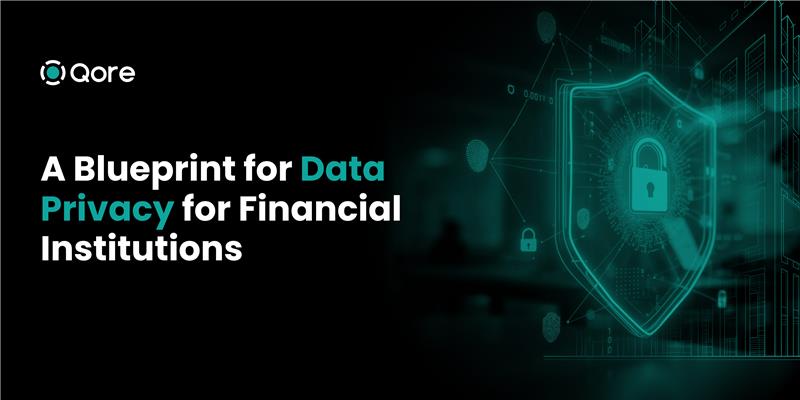
Data is the new currency, and financial institutions have a role to play in balancing innovation with responsibility. Every financial institution holds millions of customer data which are sensitive, and they also face the pressure to safeguard their data against breaches and regulatory non-compliance. A single data leak can destroy customer trust and tarnish a reputation that has been built over a long period of time.
With the rapid rise of digital banking, AI-driven analytics, and cross-border financial services, institutions need to adhere to regulatory frameworks such as GDPR, CCPA and emerging global standards that can help improve data governance strategies.
In this article, we will be looking at how financial institutions can ensure that the data of their customers, employees, and partners are handled with care, respect, and full compliance with data privacy rules applicable to them.
Understanding Data Privacy
Data privacy is the principle where people should have control over their personal data. This includes the ability to decide how organizations collect, store and use their data. Most businesses regularly collect user data such as email addresses and phone numbers.
In today’s data economy, supporting privacy means:
- Obtaining user consent before processing data
- Protecting data from misuse
- Allowing users to actively manage their data.
Best Practices for Financial Institutions
1. Privacy by Design: It Starts at the Drawing Board
When launching a new product, privacy should be a part of the building blocks. This means:
- Collecting only the necessary data
- Ensuring the data is secure through encryption and access controls
- Empowering users to control who sees their data and for how long
This approach shows privacy-by-design principles embedded in modern data protection frameworks.
2. Think Ahead: Risk Assessments for Sensitive Data
If a project could pose risks to people’s privacy like using analytics, AI, or handling financial or health information, conduct a Data Protection Impact Assessment (DPIA).
This allows an institution to:
- Clearly document how data will be used
- Identify and reduce privacy risks
- Build safer systems from day one
3. Stay Accountable
It is one thing to take data seriously and another to show that you are serious about data collection. It is important to maintain detailed internal logs of:
- What data is collected and why
- How it’s secured & used/processed
- Who has access and for how long
This transparency will enable you to respond to user requests quickly and meet regulatory requirements with confidence.
4. Appoint a Data Protection Officers
It is important for every organization to have a dedicated Data Protection Officer (DPO) who:
- Reviews your projects and systems from a privacy lens
- Provides privacy guidance to teams across the company
- Serves as a point of contact for regulators and individuals
- Helps make privacy an everyday part of your company culture
5. Nigeria’s NDPA: Our Foundation at Home
As a proudly Nigerian company, Qore is fully aligned with the Nigeria Data Protection Act (NDPA). This legislation requires:
- Lawful and fair collection of personal data
- User consent for data processing
- Security safeguards to prevent unauthorized access or leaks
- Respect for individuals’ rights to access, correct, and delete their data
We’ve embedded these NDPA principles into our operations while aligning with global data protection best practices. It is important for institutions to adhere to data protection acts as it applies in their countries.
How Does Qore Handle Data Protection?
At Qore, protecting personal data isn’t just a box-ticking exercise, it’s part of who we are. In an age where cybersecurity threats are growing and digital trust matters more than ever; we’ve taken strong steps to build data protection into the heart of our business.
As a company, our data protection processes meet globally recognized standards, one of which is ISO/IEC 27001:2022 – Information Security Management System. These standards help us scale responsibly and serve clients with confidence across diverse sectors.
For us, data protection is a commitment to our users, our partners, and the future. By integrating privacy into our technology, our people, and our decisions, we don’t just comply with laws, we build trust.
References
What is data privacy. (December 2023). IBM. What Is Data Privacy? | IBM
Nigeria Data Protection Act (NDPA) General Application and Implementation Directive, NDPC – ndpc.gov.ng
ISO/IEC 27001:2022 – Information Security Management Systems, ISO – iso.org
ISO/IEC TR 27015:2012 – Guidelines for Financial Services, ISO – iso.org
Build Tomorrow, Today
Let’s discuss how our products can give your business the boost it needs.

